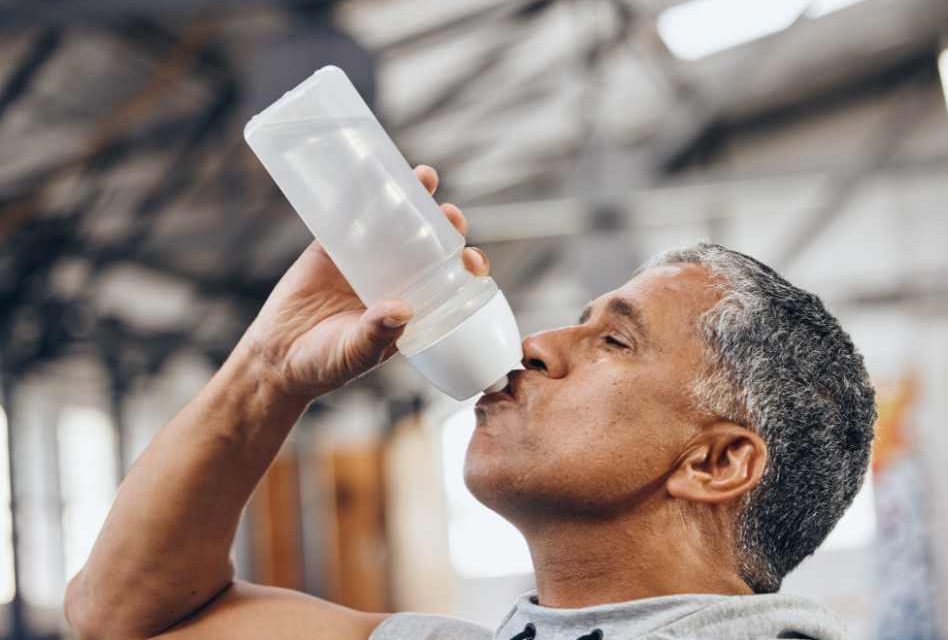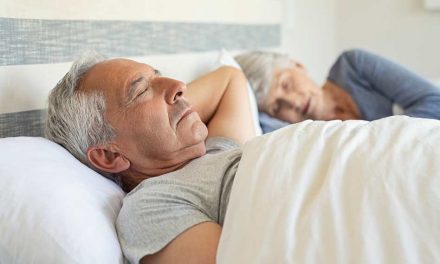
It’s a warm day and you’ve just finished a brisk walk outside. You don’t feel very thirsty, so you forget to toss back some water.
As you age, your urge to drink — your thirst perception — tends to diminish, and that can lead to dehydration. Failing to drink enough water is a common health issue among Americans, older people in particular.
According to one estimate, 20% to 30% of the elderly population is prone to dehydration for various reasons. One study found that up to 40% of elderly people living outside of nursing homes may be “chronically underhydrated.”
The consequences can be serious. Dehydration is a common cause for hospitalization among seniors, and an estimated 17% of those seniors die within a month of being hospitalized.
If you’re a senior, it’s not hard to stay hydrated. Prevention is as close as the nearest water tap. But it takes awareness and diligence to ensure that you’re drinking enough water to stay healthy.
Why Are Seniors at Risk?
One of the consequences of aging, in addition to a diminished sense of thirst, is that your body simply has less water than it did when you were younger. In other words, older people have a built-in water deficit. That’s one reason why it’s so important for seniors to stay hydrated.
In addition to that, other factors make seniors more vulnerable to getting dehydrated, including:
- Medications such as laxatives for constipation and diuretics for heart conditions and high blood pressure.
- Weaker, less efficient kidney function.
- Dementia and other neurological conditions can result in forgetting to drink.
- Illnesses like the flu can lead to fluid loss because of vomiting and diarrhea.
Symptoms of Dehydration
It’s important to recognize the early symptoms of dehydration so you can act to help yourself or your loved ones. Those early symptoms include:
- Dark-yellow urine
- Fatigue
- Dizziness and headaches
- Muscle weakness and cramping
- Low blood pressure
- Lack of coordination and confusion
How Much Water Is Enough?
Talk to your doctor to determine how much water you need. But generally, older people should be drinking 1.5 to 2 liters (50-67 ounces) of water a day. (If you’re a visual person, 2 liters is one of those large bottles of soda you see in the grocery store. For ounces, figure on four to six of those 12-ounce plastic water bottles.)
Another common way to calculate how much water you need is to divide your body weight by one-third and drink that many ounces of water each day. For example, if you weigh 150 pounds you should aim for 50 ounces of water.
Keep in mind that alcohol, coffee and sodas containing caffeine can act as diuretics, which means they cause you to pass more urine and lose more fluid.
Five Ways To Stay Hydrated
Unlike many medical conditions, dehydration can very often be avoided simply by making sure you’re getting the amount of liquid your body needs to function efficiently.
Here are five tips to help make sure you, or your loved ones, stay healthy and hydrated:
- Always keep water nearby. If you’re working outside, or exercising, have a bottle at the ready.
- Eat foods with high liquid content, including melon, tomatoes, peaches, celery and soups.
- If you have an elderly loved one, try to closely monitor how much and how consistently they’re drinking, and remind them to stay hydrated.
- Make drinking water a habit by drinking water on a schedule throughout the day.
- Water can get boring, so spice it up by adding cucumbers, lime and other flavor enhancers.
Source: Orlando Health, www.orlandohealth.com


















